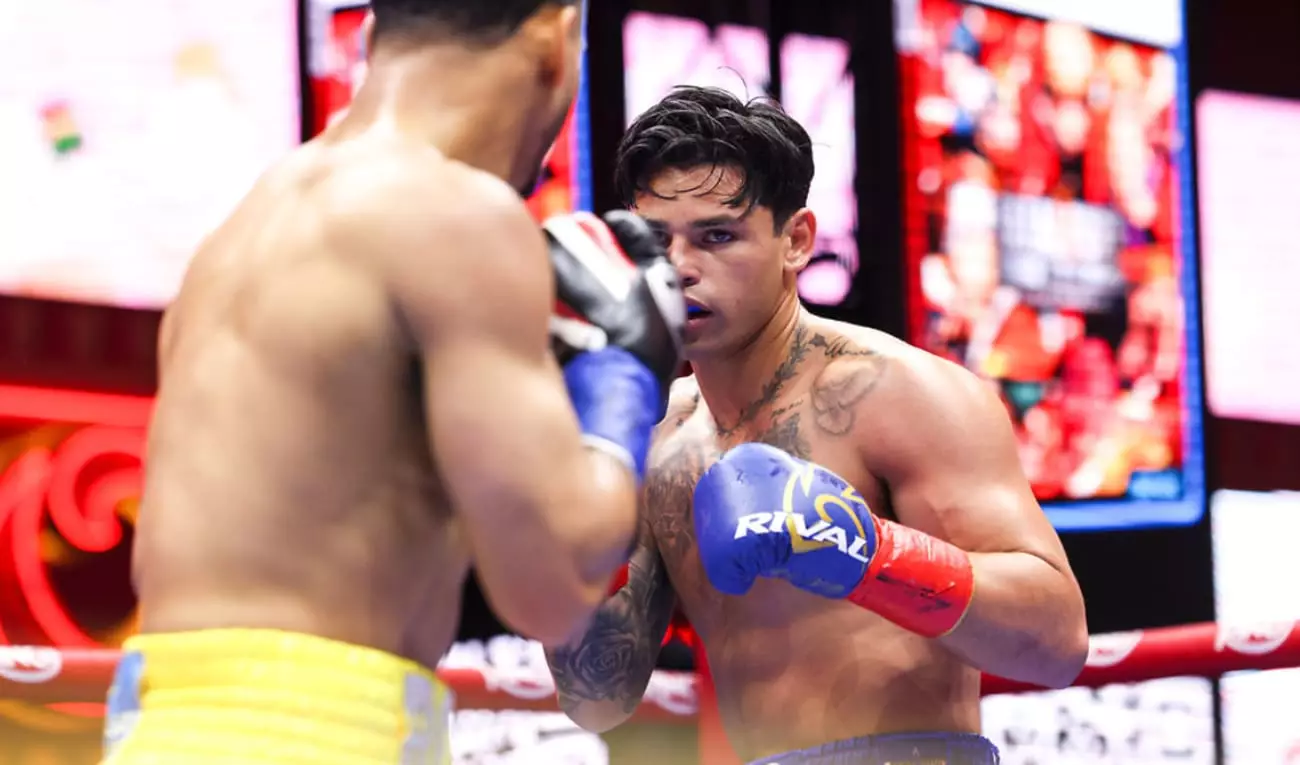In the modern boxing landscape, the importance of strategic matchmaking cannot be overstated. Oscar De La Hoya’s reluctance to pursue a rematch between Ryan Garcia and Rolando ‘Rolly’ Romero demonstrates a keen awareness of audience interest and the broader implications for the sport. By dismissing a dull and arguably uninspiring bout, De La Hoya underscores a vital truth: promoters must prioritize entertainment value and meaningful rivalries to invigorate the sport. Essential to this is understanding which matchups genuinely excite fans and generate revenue, rather than sticking to predictable rematches that lack controversy or storylines. This strategic approach elevates boxing from mere competition to a spectacle that commands attention, keeps fans engaged, and sustains the sport’s growth.
Introducing New Rivalries: The Case for High-Profile Clash
Rather than rehash a fight that failed to capture the public’s imagination, De La Hoya’s vision to pit Ryan Garcia against Teofimo Lopez represents a shrewd move to ignite new interest. Both fighters possess compelling narratives—Garcia’s drive to prove himself ahead of contract negotiations and Lopez’s status as a reigning star with a storied record—making the potential bout a highly marketable event. A matchup with Lopez promises not just a clash of styles but also a collision of personalities that can energize audiences worldwide. Such high-stakes games are crucial for boxing’s long-term appeal, transforming fighters from mere competitors into icons whose battles are épics worth remembering. Promoters who understand this principle will shape a future where boxing remains relevant and exhilarating.
The Strategic Politics of Fight Negotiations
Securing a fight like Garcia versus Lopez isn’t just about mutual interest; it involves thoughtful negotiations and high-profile backing—possibly from influential figures like Turki Alalshikh. Lopez’s lucrative last outing and Garcia’s recent paychecks highlight the monetary stakes involved in big fights. For fighters to agree to these bouts, they must see the potential for increased earnings, fame, and legacy-building. Promoters play a pivotal role in facilitating these negotiations, ensuring that the financial incentives align with the sport’s growth. The behind-the-scenes political chess, from negotiations to promotional backing, ultimately determines which fights come to fruition. This intricate process underscores the necessity of bold, strategic choices in shaping boxing’s landscape and ensuring its resilience amidst competition from other combat sports.
The Future of Boxing: Prioritizing Impactful Matchups
What emerges from De La Hoya’s stance is a clear message: boxing must evolve by emphasizing meaningful matchups that resonate with fans and create lasting legacies. Instead of Succumbing to the allure of easy rematches, promoters and fighters should seek fights that ignite passion and storytelling. This approach not only sustains fan interest but also elevates fighters’ careers, pushing both to new heights. As boxing seeks to regain its prominence amid a crowded sports market, the ability to craft captivating, high-stakes battles becomes paramount. The sport’s future depends on strategic decision-making that balances commercial interests with the innate drama of competition, ensuring that every fight is a chapter in boxing’s grand narrative of resilience and excitement.

